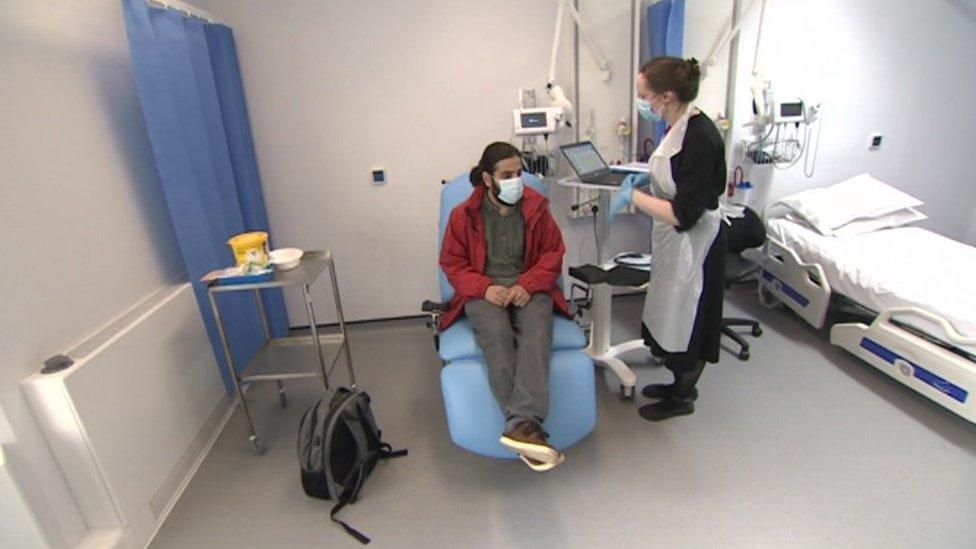Human challenge tests for Oxford paratyphoid vaccine
- Published

The first volunteers have received doses of vaccine, or a placebo, in Oxford
Volunteers are set to be infected with a highly contagious bacteria to test a new paratyphoid vaccine.
The study in Oxford involves 76 healthy, 18 to 55-year-olds drinking a solution containing the paratyphoid bacteria to see if they are protected from infection.
The disease, which is similar to Typhoid fever, is spread via poor sanitation and dirty water.
Trial managers said vaccines were "urgently needed".
Under the "human challenge" trial, volunteers either receive two doses of the new paratyphoid vaccine or a placebo, given 14 days apart.
All participants are then "challenged" with paratyphoid bacteria.
Participants are monitored and treated with antibiotics as soon as they show signs of infection, or after two weeks if they do not show any signs of infection.
It allows scientists to assess the vaccine's effectiveness without having to immunise thousands of people.
'In good hands'
While a new vaccine has recently been approved for typhoid, there is currently no vaccine licensed for paratyphoid.
Professor Sir Andrew Pollard, director of the Oxford Vaccine Group and chief investigator of the trial, said vaccines against the bacteria were necessary due to increasing antibiotic resistance.
"Vaccines are urgently needed to prevent the 3.3 million cases of paratyphoid fever that mostly affects school-age children in South and South East Asia," he added.
"This first human challenge study to evaluate a paratyphoid vaccine will bring us a step closer to reducing the burden of this affliction in the world."
First-time trial participant Ali Malik, 28, from Oxford, said: "As soon they detect anything, you are on a full course of antibiotics so you are not in any serious discomfort.
"It's good to be part of medical trials where they need people."
Fellow volunteer Polish national Paulina Mascianica, 33, who lives in Oxford, said: "As long as it's curable I don't mind getting sick at all - I know I'm in good hands."
The full results are expected in 2023.

Follow BBC South on Facebook, external, Twitter, external, or Instagram, external. Send your story ideas to south.newsonline@bbc.co.uk, external.
Related topics
- Published1 November 2010